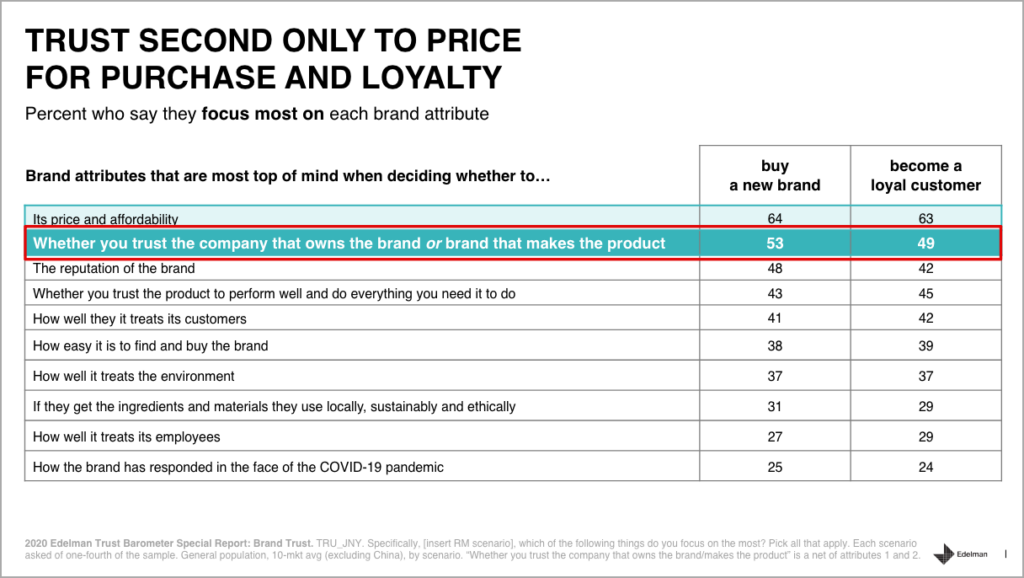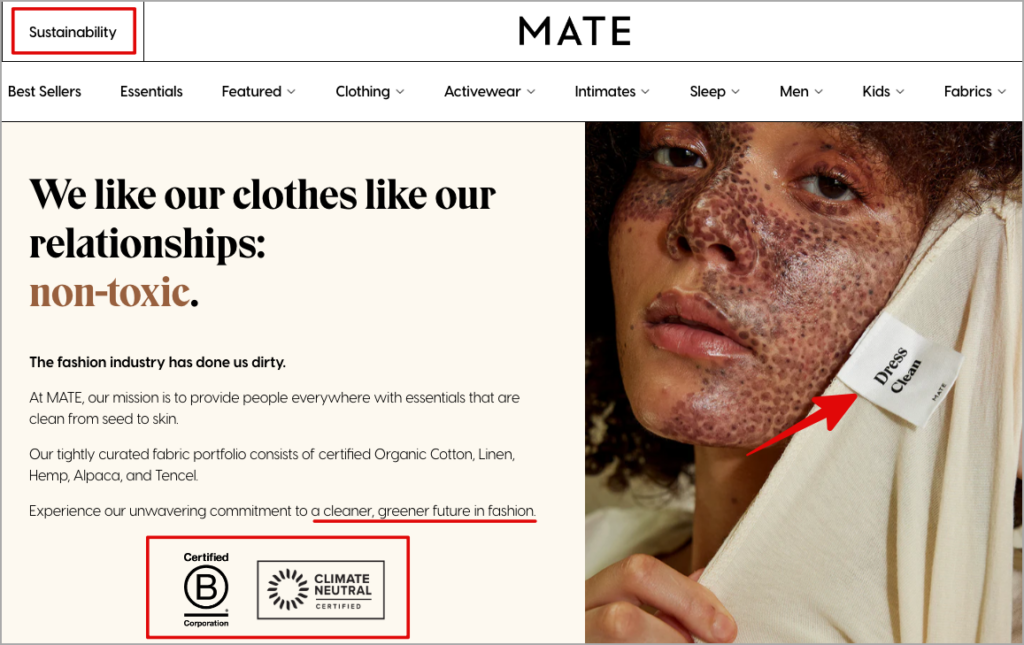In times of crisis, we tend to look inwards. We reflect on our own values and our deeply-held beliefs. What’s really important to us? What motivates our choices and our decisions? In the midst of not only a global health crisis but also serious political and social unrest, many of us have been forced to confront (and in many cases reassess) our values.
In 2021, the brand measurement firm Vrity conducted a survey into consumer values and how the COVID-19 pandemic had impacted brand-related buying. Their most significant finding? 55% of consumers said they pay more attention to brand values than they did a year earlier. In an increasingly socially-conscious world, your brand values can be the catalyst to building trust, creating loyalty, and ultimately driving customer engagement.

What Are Brand Values?
As individuals, our values guide the way we live our lives. They shape our thoughts and influence our actions, from the way we treat others, to the food we eat and the cars we buy. They are the principles we live by and the beliefs we hold onto. But just as people must have values, so too must your brand: their values must shape what they do (and how they do it).
In much the same way that our individual values influence the way others perceive us, your brand’s values will affect how consumers view your brand from the outside. What does your brand stand for? Is it socially responsible? Does it give back to its community? As consumers become more concerned with a brand’s corporate social responsibility, it’s these values that differentiate brands and play an increasing part in consumer buying decisions.

Why Are Brand Values Important?
Given that 82% of consumers say they would pay more for a value-aligned brand, your values — providing they’re communicated well — are invariably key to driving increased sales. Your competitor may offer a cheaper product, say, but a customer may opt to spend their hard-earned cash in your store if your values match with theirs. Your sustainable packaging or vegan-friendly ingredients might increase your outgoings, but this is likely to be outweighed by the sales driven by environmentally-conscious consumers.
Trust
Trust is one of the most sought-after commodities in a crowded retail space; consumers buy from brands they trust, and wilfully swerve those they don’t. In fact, a study by Edelman found that trust in a brand was the second most important factor (behind only affordability) in determining whether a consumer decides to buy from a brand. Your values are key to building trust, and therefore loyalty because customers believe in brands whose values run parallel to theirs.

How to Communicate Your Brand Values
When communicating brand values, sincerity is the best policy, especially since 94% of customers are likely to show loyalty to a brand that offers complete transparency. Consumers will value your honesty, and most will be able to see through any deceptive or ambiguous claims. Vague promises like “eco-friendly” can be filed under greenwashing (a form of PR spin that overstates a company’s environmental credentials) since it really has no tangible or verifiable value and is unlikely to sway even a casual environmentalist.
Particularly concerning green operations, what ultimately matters is action. When you express a sentiment, ensure that you do something to make it feel consequential. A brand that stands for something without blowing anything out of proportion might not get a huge amount of buzz from it, but it’ll strengthen its reputation somewhat.
An example of this is Cloudways, a cloud hosting company that announced a conservation commitment at the tail end of 2021. Planting more trees matters, and there was no self-aggrandizing rebrand to “Greenways” (yes, brands have made such exaggerated moves before, and they never go well).
Website Presence
On the topic of walking the walk, your brand values should inform everything from the design and layout of your website to your marketing, social, and PR strategies. When a user lands on your website for the first time, can they glean your core values from its homepage? Do you care about clear communication? Your copy should show that. Do you want to help your customers achieve their goals? Adding functionality is the way to prove that.
Social Media Presence
Do your social media posts reflect a brand that cares? Incorporating your brand story will encourage emotional (as well as financial) investment, helping to build meaningful, long-lasting relationships between brand and consumer. And why not include testimonials from your existing customers? User-generated content (see MATE the Label’s homepage) is highly effective at showing that others already trust and value your brand.

Going a step further, cause marketing is an increasingly-popular tactic embraced by forward-thinking brands, and it’s highly effective at proving your investment in social progress. In a cause marketing campaign, a for-profit business makes a commitment to highlight and support social causes, often partnering with not-for-profit organizations and local communities. In one classic example, the website software host Squarespace launched a campaign called #ActWithPride to shine a spotlight on the LGBTQIA+ community by encouraging users to share inspiring stories across their social media platforms.
In summary, it’s clear that today’s consumers are more concerned than ever about brand values. In this current social and political landscape (and with the specter of a global pandemic still looming). many consumers are less concerned with value for money and more with a brand’s social, environmental, and charitable footprints.
Your brand values guide everything you do, and they’ve never been more important than they are now. Consumers care. And if you care about the same things your consumers care about (and you’re communicating them in the right way), you can drive genuine customer engagement and foster unbreakable consumer loyalty.






